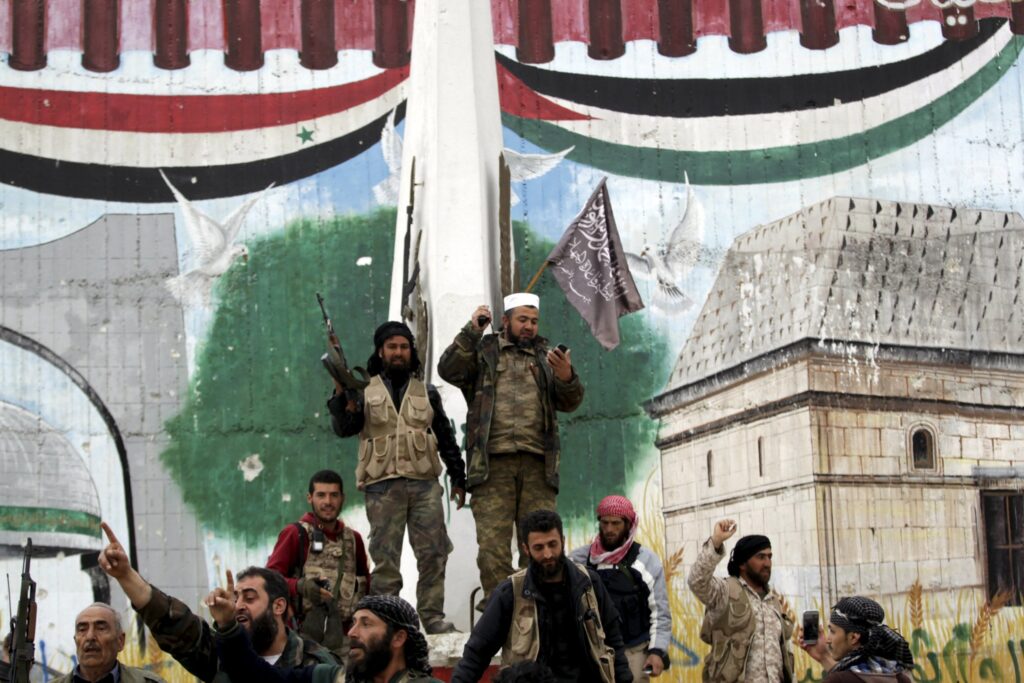Al-Qaeda Offshoot HTC’s Image Shift: A New Push for Political Dominance in Syria

Introduction
In the intricate, multi-dimensional Syrian conflict, new players constantly emerge to vie for power and control. Among these players is HTC, an offshoot of the notorious Al-Qaeda, which has been working diligently to rebrand itself in an attempt to transition from its radical extremist roots into a more politically viable force.
Who is HTC?
HTC, short for Hay’at Tahrir al-Sham, is a militant group that rose to prominence in the chaotic landscape of Syria’s civil war. Actually, HTC was a break-away from Jabhat al-Nusra. This was the franchise in Syria for Al-Qaeda. These extremist people and groups have their basis with violent jihadism which thrives on extremist thinking geared toward the establishment of a Sharia state under unbridled Sharia law. Of course, all these have changed; however, HTC has done everything to change from such strict elements towards seeking political domination.
Also Read:
Hidalgo Notifies Senate of Los Angeles Move, Rejects Unreachable Claims
Origins of HTC
Going back to the origins of the HTC we would need to address the beginning of the Syrian Civil War when Jabhat al-Nusra began its mission under the Al-Qaeda’s flag. Initially, it was created with the mission of combating the government of Bashar al-Assad in Syria and rapidly received quite recognition owing to its violent aggressive actions as well as the implementation of terrorist principles. But as the war continued and other groups came into the fight, the official HTC distanced itself from al-Qaeda It wanted to present itself as a more homegrown Syrian organization while still retaining its radical roots.
The Shift in Ideology
The ideological shift from an Al-Qaeda affiliate to a more politically focused entity has not been without its challenges. HTC has distanced itself from the worldwide jihadist agenda and instead emphasized setting up a Syrian-controlled government. This move has been a key factor in allowing HTC to achieve a wider support base from the local communities that are tired of foreign intervention and terrorism.
The group has as well attempted to repackage its message, positioning HTC as the alternative to both the Assad regime and radical factions.
HTC’s Image Rebranding
In its efforts to gain the support of the Syrian people and the rest of the international community, HTC has really done much in order to dilute its hard image. From the times when this group is connected with the atrocities committed by terrorism, the same group now wants to position itself as more pragmatic in its politics to be involved in rebuilding Syria.
Public Relations Strategy
HTC’s image shift is heavily embedded in its public relations campaign. The group has been attempting to reach out to local populations in Idlib and other rebel-held territories by providing health care, education, and basic infrastructure projects. It aims to show that HTC is more than a mere militia group; it can be an alternative government which will stabilize areas where the state is absent.
Softening the Narrative
One of the most important features of HTC’s rebranding is its attempt to position itself as a “moderate” force, dissociating itself from the brutalism of previous jihadist movements. The group is eager to present itself as ready to negotiate with other Syrian opposition factions and even international actors. This narrative is meant to rebrand HTC from an extremist group to a political organization interested in Syrian sovereignty and reconstruction.
HTC’s Political Ambitions
As HTC is currently rebranding its image, it has clearly announced that it is not just satisfied with military influence, but it has political ambitions. The organization is aggressively trying to find a place in Syria’s future after the war, by forming alliances and using military power to gain political influence.
Alliances and Power Struggle
However, HTC’s political ascendance has not been without difficulties. The Syrian opposition is deeply fragmented, with many competing factions vying for the most significant share of power. HTC has looked to form alliances with other groups, like the Syrian Liberation Front and a variety of moderate rebel factions, in order to build its political influence. Through these coalitions, HTC hopes to consolidate its own power and create a more unified front against the remnants of both the Assad regime and ISIS.
The Battle for Legitimacy
International legitimacy is another significant challenge HTC faces. The group has been accused of being linked to terrorism because of its previous association with Al-Qaeda, and it is unlikely to receive recognition from global powers or the United Nations. However, HTC has made efforts to be seen as a responsible political actor by holding diplomatic talks with foreign governments and humanitarian organizations. Such diplomatic outreach is crucial to its long-term survival and influence in post-war Syria.
Challenges Ahead
Despite its best efforts, HTC is faced with many challenges as it attempts to gain political influence in Syria. The country is highly polarized, and warring factions and outside forces have a lot to play with in the continued battle for control. HTC still has a long way to win legitimacy.
Handling Fringe Factions
HTC must contend with a range of rival groups, including both Islamist factions and secular opposition forces. These groups have different visions for Syria’s future, and HTC’s attempts to forge alliances will be tested as these factions jockey for influence. Moreover, internal dissent within HTC could also threaten its political aspirations, as various factions within the group have differing views on its future direction.
Regional and Global Tensions
Regional and global tensions also complicate HTC’s rebranding and political ambitions. Turkey, Iran, and Russia have interests in the Syrian conflict, and their support or opposition could greatly influence HTC’s future. The group needs to navigate these complex relationships very carefully, balancing regional dynamics with its internal goals.



